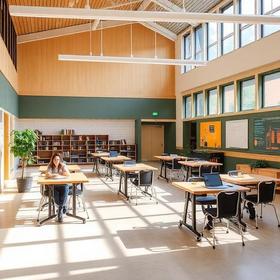Military Boarding Schools: Are They Still Relevant in 2025?
Military boarding schools have a long tradition in American education. In 2025, families and educators are asking: does the model still hold value? This article examines the status, strengths, challenges, and future prospects of military boarding schools for the modern student.
What Are Military Boarding Schools?
A military boarding school is a residential college-preparatory institution that incorporates a military model of structure, leadership development, uniforms, and often Junior ROTC programs. Unlike service academies, these schools do not require commitment to the armed forces. They emphasise discipline, character building, and academic preparation.
According to one directory, there are 14 military boarding schools listed for the 2025-26 year in the U.S. and Canada, serving approximately 3,700 students. Boarding School Review
Why the Model Still Offers Value in 2025
Leadership, discipline and character
Military boarding schools remain attractive because they deliver a structured environment in which students can develop time management, responsibility, and leadership skills. Research indicates those facets remain key benefits.
Academic preparation
Many schools advertise smaller class sizes and rigorous academics alongside the military structure. For example, one listing noted the combination of academic rigour and personal development.
Unique residential community
Living on campus enhances peer bonding, mentorship and immersion in a distinctive environment. That residential component often sets apart boarding schools generally, and the military model amplifies the sense of shared mission.
Skill-transfer beyond the military
Contrary to misconception, most students in military boarding schools do not join the military. Instead they leverage discipline, leadership and character formation in college and in civilian careers. College Transitions
The 2025 Update: What Has Changed?
Changing student expectations
Today’s students and families demand not only academic outcomes but also well-being supports, mental health resources and inclusive environments. A military boarding school must adapt to these priorities.
Cost pressures and demographic shifts
With tuition increases, competition from day schools, online education and alternative models, military boarding schools feel pressure. One notable institution, the Valley Forge Military Academy announced closure after the 2025-26 academic year citing rising costs and shrinking enrolment. Wikipedia
Diversity, inclusion and evolving purpose
Historically male-only, some military boarding schools are now co-educational or emphasise inclusive leadership rather than traditional hierarchical models. The notion of “military” must now align with values of diversity, adaptation and modern leadership, not just drill and uniform.
Integration with college-prep and global perspective
Modern military boarding schools increasingly embed advanced courses, global awareness, leadership labs and technology. One commentary noted that in 2025 the model emphasises “character building, leadership development, physical fitness and global perspective”. St. John's Northwestern
Key Advantages vs. Key Limitations (in 2025)
| Advantage | Explanation |
|---|---|
| Structured daily routine | Fosters self-discipline and time-management habits. |
| Leadership roles | Students often serve in cadet leadership, supporting peer mentoring. |
| Residential immersion | Living with peers fosters maturity, independence, lifelong relationships. |
| College prep + character focus | Many graduates succeed in college with both academic and personal-growth credentials. |
| Transferable skills | Leadership, resilience and accountability carry into many fields. |
| Limitation | Explanation |
|---|---|
| Cost and access | Boarding tuition is high; scholarship availability may be limited. |
| Fit and culture | Not all students thrive under regimented structure or rigid daily schedules. |
| Modern expectations | Families increasingly expect flexibility, mental-health support, fewer rigid hierarchies. |
| Perception issues | The term “military school” can conjure outdated stereotypes or discipline-only imagery. |
| Market pressure | Declining enrolments and rising competition challenge some institutions. |
Who Might Benefit Most?
Military boarding schools may be especially relevant in 2025 for:
Students who seek a structured environment and thrive with a clear routine.
Families who prioritise leadership development, character building, and co-curricular engagement.
Students who are committed to college prep and want the extracurricular advantages of a residential community.
Families ready for boarding life (including being away from home) and the associated cost, travel and emotional readiness.
Conversely, they may be less suitable for students needing more flexible scheduling, less hierarchical structures, or significant therapeutic support not centred on a military model.
How to Evaluate a Military Boarding School Today
When considering a military boarding school in 2025, families should ask:
What is the school’s mission, and how has it evolved for modern students?
How does the school support mental health, inclusion and well-being?
What results does the school deliver in college placement, student satisfaction, and alumni outcomes?
How is the military model integrated with academic, leadership and life skills – is it rigid or adaptive?
What is the cost and what financial aid is available?
What is the student body like – co-ed vs single gender, domestic vs international, size of cadet corps?
How does the school connect boarding life with the broader goals of college and career readiness?
Resources such as the Association of Military Colleges & Schools of the United States (AMCSUS) provide guidance and school listings. AMCSUS
Outlook: Are Military Boarding Schools Still Relevant?
The short answer: yes, military boarding schools remain relevant in 2025, but only for the right student-family fit and when the institution has modernised appropriately.
Their core strengths – leadership development, structure, residential life and college preparation – still address enduring parental concerns: How do we prepare our teenager to succeed academically, lead responsibly and transition into adulthood with maturity?
However, relevance is conditional:
The school must adapt modern expectations around student wellness, inclusivity and flexibility.
Families must recognise the commitment required: boarding life, tuition, separation from home.
The market pressures mean some schools may struggle unless they differentiate, modernise or demonstrate strong outcomes.
In essence, the military boarding school model is not a one-size-fits-all panacea, but rather a specialised offering that in 2025 continues to hold value for a specific set of families and students.
Conclusion
For parents, students and educators exploring the educational landscape in 2025, asking whether military boarding schools are still relevant is worthwhile. The answer is affirmative – with caveats.
As the educational environment evolves, the best military boarding schools will combine tradition (discipline, leadership, residential community) with 21st-century ideals (flexibility, mental-health support, global awareness). For families aligned with that blend, the model remains a strong choice. For others, alternatives may better meet student needs.
Careful research, campus visits, conversations with alumni and honest assessment of fit will guide whether a military boarding school is the right path. When matched well, it remains a compelling option for student development in 2025.















